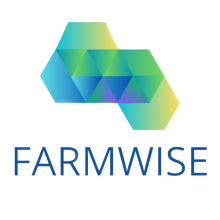In a nutshell: The FARMWISE project will develop improved tools based on artificial intelligence (AI) for more efficient European water policy and decision-making founded on research-based technologies to solve the most burning water pollution problems. For this purpose, the FARMWISE consortium brings together the best European water, agricultural, climate and AI researchers to handle the sustainability of water resources, the natural environment, and efficient agriculture in the highly diverse European landscape in view of present and future climate change.
The main objective of this project is to provide farmers and policy-makers with valuable local and regionalinsights and decision-support tools, which will help to guide data-driven policy decisions in these crucial areas. The project will involve collecting, analysing, assessing, and compiling large amounts of data from various sources, including the European Member States, the European Commission (EC), and other international organisations. The methodology will involve the development of a new data architecture, which will allow for the efficient processing of large volumes of data and the generation of high-quality outputs. Ethical ML algorithms will be thoroughly validated and generalised before application to extract meaningful insights in identifying underlying patterns and trends. FARMWISE will achieve its main objective through several Specific Objectives (OBs) related to the expected impact positions presented in the HORIZON-CL6-2023-ZEROPOLLUTION-01-1 topic (“Knowledge and innovative solutions in agriculture for water availability and quality”) (Table 1.1). FARMWISE will use the ‘Monitoring the Evolution and Benefits of Responsible Research and Innovation’ (MoRRI) framework for RRI dimensions & indicators.
INGENIO CSIC UPV, lead WP 1: Co-creating Water Management Strategies in Agriculture: A Systems Thinking Approach. Due to the variety of actors, elements and dynamics involved in FARMWISE, it is necessary to adopt a System Thinking (ST) perspective that allows systematising the complexity and reducing its logic to a language common to all the agents involved. By a collection of useful information from different and converging points of view, detecting needs, problems and opportunities, it will be possible not only to elaborate a common and effective diagnosis of this socio-ecological system and its subsystems but - more importantly - to plan an effective and feasible intervention allowing the development, monitoring and timing of appropriate mechanisms. For this reason, the objectives and planning of the project proposal will be aligned with a design thinking approach which will consider the project's end-users. Capacity-building approaches will translate this to scientists, land managers, and farmers in the local context and with policy recommendations to different EU groups. To achieve FARMWISE’s objectives, not only inter- but also trans-disciplinary approaches integrating the diversity of knowledge are needed. FARMWISE will hence adopt a multi-stakeholder approach working closely with several societal actors. The multi-stakeholder approach for FARMWISE follows the methodology defined by the Dutch Research Institute for Transitions (DRIFT) of the quadruple helix innovation model (gathering public administration, civil society, business, and academia stakeholders) to create a two-level methodology. First, a permanent multi-stakeholder advisory group at the European level will be created. FARMWISE's relevant stakeholders were preidentified, categorised and described in Table 2.5. Secondly, following successful, equally complex previous projects, local multi-stakeholder groups in each case study region will be created to analyse characteristics, barriers and opportunities with an ST perspective. These local groups will be in direct communication with the information generated in the other WPs to help the development of project tools and policy recommendations. We will use several tools to address this complexity and achieve our goals, such as the challenge-driven systems mapping methodology or the Climate-KIC visual toolbox for systems innovation. For the correct development of these groups, facilitating multi-actor engagement, capacity development, and a “Train the Trainer” program will be scheduled to coordinate inputs and outputs. Two phases will define this program: “Analyse”: serves to understand important contextual factors that can support or stifle change from unfolding. This crucial phase includes the analysis of rural sectors, cross-cutting challenges, and identifying potential stakeholder groups and their potential involvement in the process. It also includes the development of robust baselines to identify challenges, enable integrated responses and assess future implementation impacts. “Act”: The second phase builds on the analysed information, guiding stakeholders in developing policy recommendations. Recommended clusters of integrated actions encompass policy, regulatory, organisational, financial, capacity building, awareness-raising, and stakeholder engagement options. One of the results will be co-creating a common vocabulary (glossary) and agreeing inter-disciplinary practices. UPV will oversee coordinating external stakeholder interaction to reduce the risk of stakeholder fatigue. The Partnership aims at enabling water security for all in the long term by boosting systemic transformations and changes across the entire water research, innovation, adoption pipeline, fostering the matchmaking between problem owners and solution providers. The development of WP1 will be executed in parallel with the rest of the work packages. Moreover, in line with the participation of the BRGM (Partner10 of FARMWISE) team in the Water4All Partnership, the identification of the stakeholders' community will be facilitated. Communication loops will be generated to transform the detected tacit knowledge into explicit knowledge valid for the scientific work phases. The systemic perspective will help correctly detect needs and opportunities, complementing the research key to creating reliable and useful products for society, such as policy recommendations.



